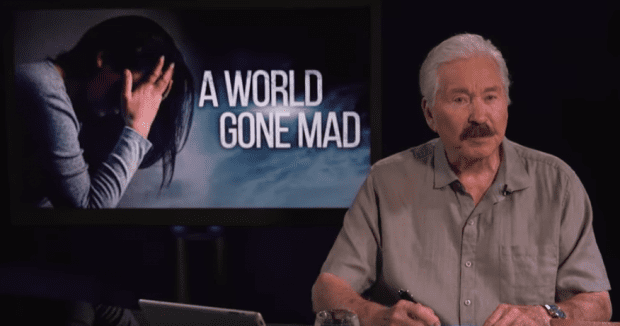Political Mental Map: Testimony Of An ‘Ironic Doomer’

Reader Edward Hamilton:
My early political formation was more internal than external — I spent a lot of time talking to myself silently and sometimes aloud — but all of the below would probably be on my list:
1. Dispensational “Rapture” theology circa 1980
2. The Space Shuttle Challenger disaster
3. James Dobson’s Focus on the Family radio show
4. The emergence of postmodern/ironic anti-establishment political commentary (Rush Limbaugh et al)We had no television when I was young and I barely had a concept of what famous politicians looked like or how they sounded, though I recognized their names. My parents were bible college graduates with a strong commitment to evangelism and deep immersion in the culture of what we’d probably call a “fundamentalist worldview” today: devotional books, Bible memory, separatism, and independent institutions (like Christian camps) designed to minimize contact with the secular world. I was exceptionally sheltered from any awareness of broader culture at a young age and thought that my world was representative of the rest of the world.
I was attuned to look for constant evidence that the world was breaking or falling apart as a validation of pessimistic eschatology. I incidentally was familiar with end-times prophecy stuff, along the lines of Hal Lindsey’s 70s-era books. I can remember feeling really impatient that the world wasn’t ending quickly enough to suit my tastes. That would have solved so many of the problems I had finding friends, feeling angry about the unfairness of childhood, or dealing with all the rules my parents were forcing me to follow.
By the early 90s, I was ready to convert to a less earnest perspective on the world, which seemed to be becoming more wicked and decadent (exactly as anticipated) with no sign of any judgment on the horizon. I started enjoying the idea of embracing an insouciant affect, and not taking the world too seriously, as a sort of rebellion against my culture. Being “political” as a teenager consisted of waiting until everyone was out of the house and then playing Limbaugh’s radio program on the stereo. I remember loving how ironic it felt, with all the constant rhetorical winking-at-the-audience, which was intensely liberating after a youth of being surrounded by people who Took Everything Very Seriously. I didn’t take anything seriously myself, and rolled my eyes at the people (at church and elsewhere) who thought they could do anything but make snarky comments about how quickly Rome was going to burn. In effect I transitioned from being a sincere doomer to being a tongue-in-cheek ironic doomer, playing things up as a sort of self-mockery of my own tribe. I was aware that this attitude was a form of decadence itself, intellectual decadence in response to social decadence, but that felt totally appropriate to me.
As an adult, nothing really moved me away from those tendencies. I never found any political figure I found trustworthy or deserving of respect, although I was clearly a cultural conservative in terms of my stylized exasperation with loosening sexual morality and the performative artificiality of politics. It’s been hard for me to recover a sense of belief in the integrity of anything outside my immediate family. I get easily impatient with the inability of other members of my church to recognize that their heroes (we’re in deep-red Texas territory here) are flawed and imperfect opportunists who would sell them out in a second. And when I interact with my former peers (siblings, childhood friends) who have become educated and moved toward educated upper-middle blue-state identities, I find them intolerably deficient in self-awareness about shortcomings of their new heroes as well. I’ve stopped thinking it’s useful to direct mockery toward sincere people; instead, I feel a sort of mixed pity and envy toward anyone who seems to have the kind of faith in temporal politics that I’ll never have — the feeling that scoring one more Supreme Court justice will break the final seal that will usher in the New Jerusalem.
I still don’t own a television, and I’m still mostly a cultural bystander (with respect to music and other entertainment media). I love science and enjoy my work teaching, and I appreciate my own family, but I don’t feel invested in anything outside that little world. For reasons I don’t fully understand, that’s very unlike my brother and sister, who are both emotionally absorbed in blue-state activist causes — my childhood wasn’t that far removed from theirs in time. Most everyone else I knew become a zealous convert to the other tribe, but I was left behind as a political agnostic, unwilling to put faith in anything.
I’m loving these posts. Other posts in the Political Mental Map series:
Subscribe for as little as $5/mo to start commenting on Rod’s blog.